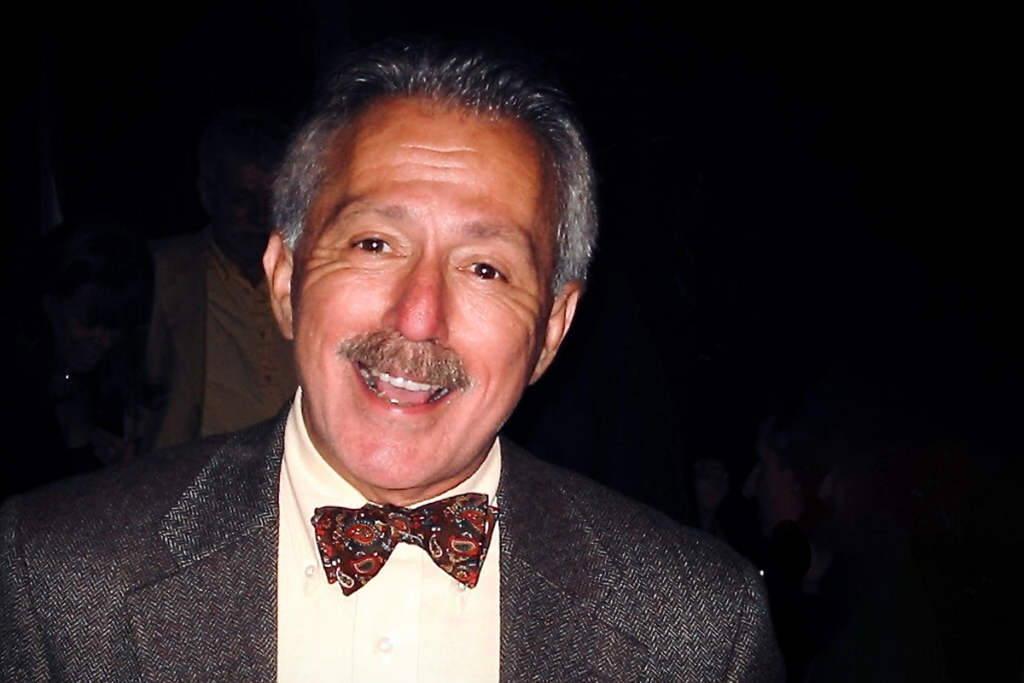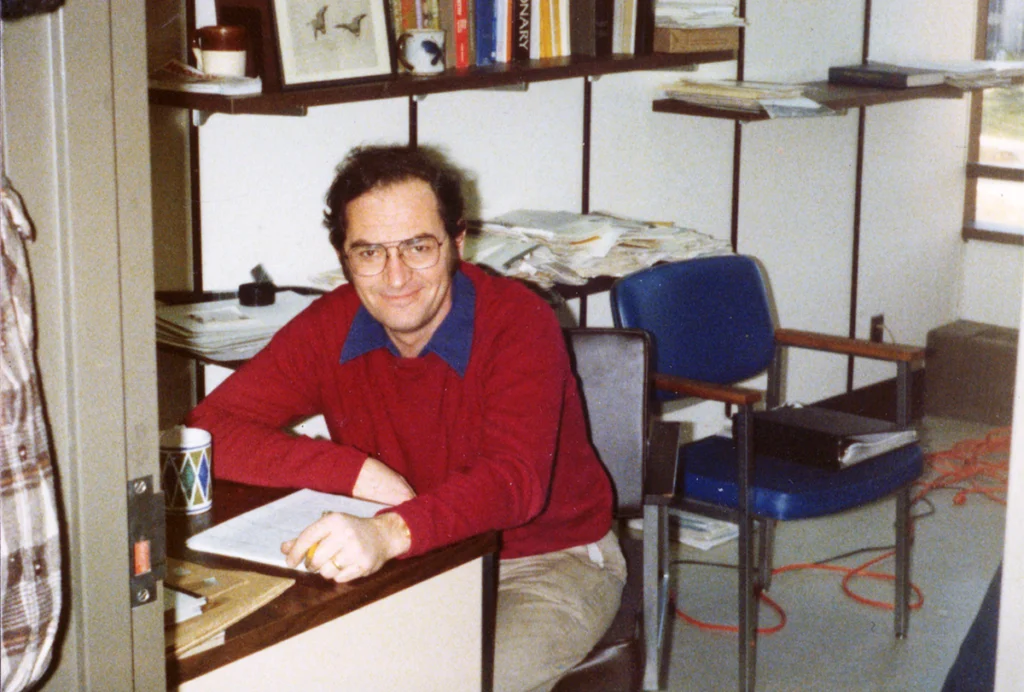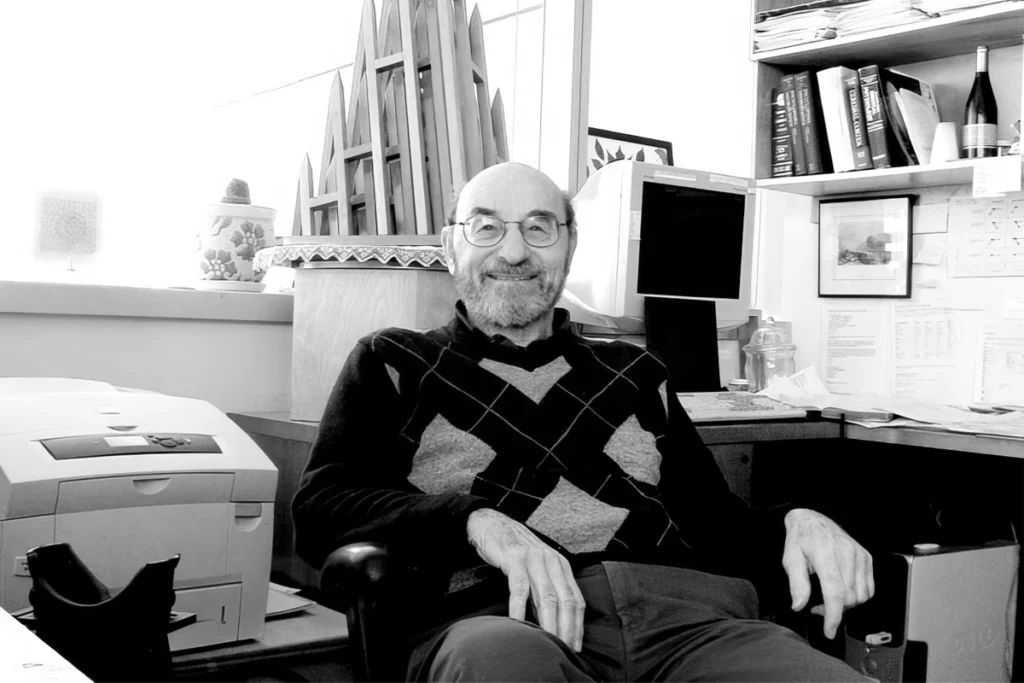Obituaries
Recent articles
Remembering prominent neuroscientists
Remembering the life of neuropharmacologist Floyd Bloom
The co-author of the classic textbook “The Biochemical Basis of Neuropharmacology” and pioneer in studying the roles of neurotransmitters in the brain died on 8 January at 88 years old.

Remembering the life of neuropharmacologist Floyd Bloom
The co-author of the classic textbook “The Biochemical Basis of Neuropharmacology” and pioneer in studying the roles of neurotransmitters in the brain died on 8 January at 88 years old.
Remembering Eleanor Maguire, ‘trailblazer’ of human memory
Maguire, mastermind of the famous London taxi-driver study, broadened the field and championed the importance of spatial representations in memory.

Remembering Eleanor Maguire, ‘trailblazer’ of human memory
Maguire, mastermind of the famous London taxi-driver study, broadened the field and championed the importance of spatial representations in memory.
In memoriam: Yves Frégnac, influential and visionary French neuroscientist
Frégnac, who died on 18 October at the age of 73, built his career by meeting neuroscience’s complexity straight on.

In memoriam: Yves Frégnac, influential and visionary French neuroscientist
Frégnac, who died on 18 October at the age of 73, built his career by meeting neuroscience’s complexity straight on.
The legacy of Steve Silberman and his book, ‘NeuroTribes’
The writer’s empathic storytelling changed how society—and researchers—view autistic people.

The legacy of Steve Silberman and his book, ‘NeuroTribes’
The writer’s empathic storytelling changed how society—and researchers—view autistic people.
Remembering comparative neuroanatomy ‘great-grandfather’ Harvey Karten
The National Academy of Sciences member and pioneer in studying non-mammalian vertebrate brains died on 15 July at 89 years old.

Remembering comparative neuroanatomy ‘great-grandfather’ Harvey Karten
The National Academy of Sciences member and pioneer in studying non-mammalian vertebrate brains died on 15 July at 89 years old.
Carol Jennings, whose family’s genetics informed amyloid cascade hypothesis, dies at 70
Her advocacy work aided the discovery of a rare inherited form of early-onset Alzheimer’s disease and helped connect affected people with researchers.

Carol Jennings, whose family’s genetics informed amyloid cascade hypothesis, dies at 70
Her advocacy work aided the discovery of a rare inherited form of early-onset Alzheimer’s disease and helped connect affected people with researchers.
Larry Young built bridges with his social neuroscience research
Known for his work bringing oxytocin studies to the mainstream, Young died unexpectedly last month.

Larry Young built bridges with his social neuroscience research
Known for his work bringing oxytocin studies to the mainstream, Young died unexpectedly last month.
The legacy of William Catterall, ‘father of ion channels’
Catterall, who characterized the structure, function and regulation of sodium and calcium channels crucial for neuronal excitability, died last month at the age of 77.

The legacy of William Catterall, ‘father of ion channels’
Catterall, who characterized the structure, function and regulation of sodium and calcium channels crucial for neuronal excitability, died last month at the age of 77.
Remembering Peter Schiller, principled pioneer of vision research
Schiller, best known for his research on how the superior colliculus controls eye movements, died last month at the age of 92.

Remembering Peter Schiller, principled pioneer of vision research
Schiller, best known for his research on how the superior colliculus controls eye movements, died last month at the age of 92.
Explore more from The Transmitter
Machine learning spots neural progenitors in adult human brains
But the finding has not settled the long-standing debate over the existence and extent of neurogenesis during adulthood, says Yale University neuroscientist Juan Arellano.

Machine learning spots neural progenitors in adult human brains
But the finding has not settled the long-standing debate over the existence and extent of neurogenesis during adulthood, says Yale University neuroscientist Juan Arellano.
Xiao-Jing Wang outlines the future of theoretical neuroscience
Wang discusses why he decided the time was right for a new theoretical neuroscience textbook and how bifurcation is a key missing concept in neuroscience explanations.
Xiao-Jing Wang outlines the future of theoretical neuroscience
Wang discusses why he decided the time was right for a new theoretical neuroscience textbook and how bifurcation is a key missing concept in neuroscience explanations.
Memory study sparks debate over statistical methods
Critics of a 2024 Nature paper suggest the authors failed to address the risk of false-positive findings. The authors argue more rigorous methods can result in missed leads.

Memory study sparks debate over statistical methods
Critics of a 2024 Nature paper suggest the authors failed to address the risk of false-positive findings. The authors argue more rigorous methods can result in missed leads.